Stories from the Field: Woman of the House
Grace Sabellano, 55 years old, is one of the beneficiaries of the Immediate and Comprehensive Response for Communities Affected by Typhoon Rai in the Philippines project funded by the European Civil Protection and Humanitarian Aid Operations (ECHO). As an owner of a house that was one of the totally damaged homes in the village of Villa Aurora in Dagohoy, Bohol, Grace received shelter assistance from the project through the efforts of Action Against Hunger.
Grace heads a family that resides in a small house made of light materials. The house sits on top of a mountain, isolated from the rest of the village. There is no other way to reach their home from the barangay proper but through a 15-minute hike in the mountains.
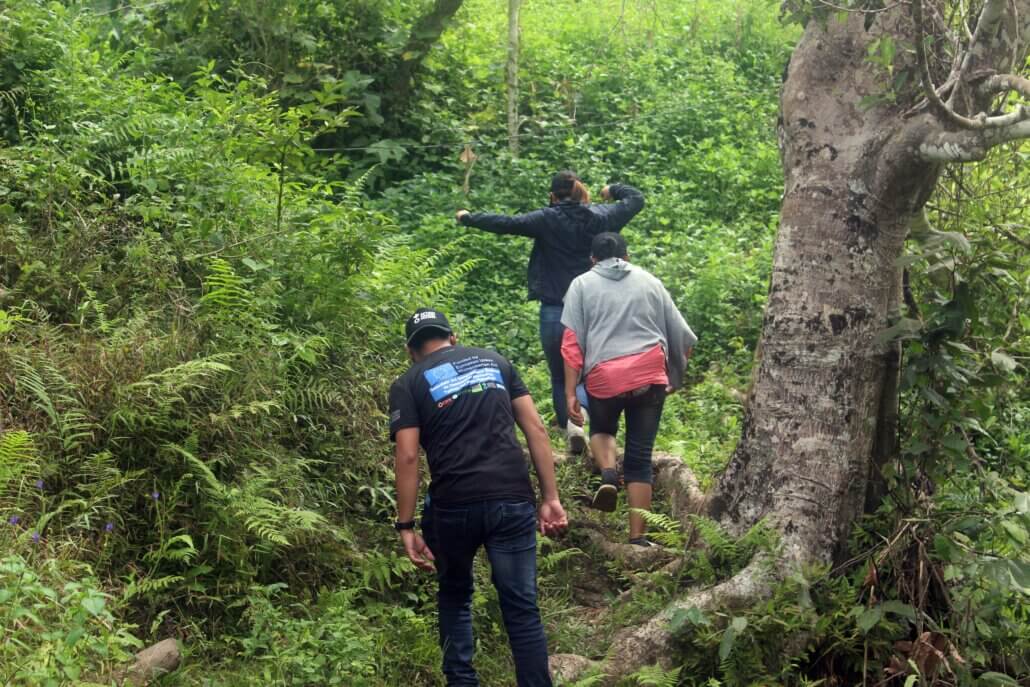
In photo: Action Against Hunger team hikes the trail leading to Grace’s house in the mountains of Villa Aurora, Dagohoy. (Photo by Donna Ocmeja for Action Against Hunger)
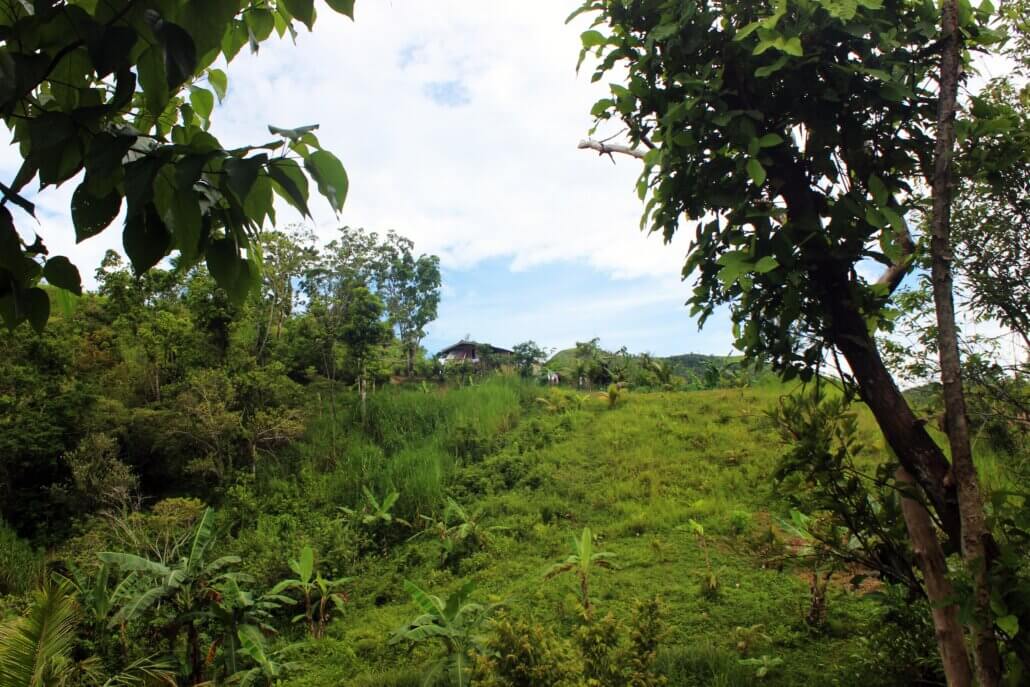
In photo: The house of Grace and her family as seen from a nearby hill that is part of the mountainous trail. (Photo by Donna Ocmeja for Action Against Hunger)
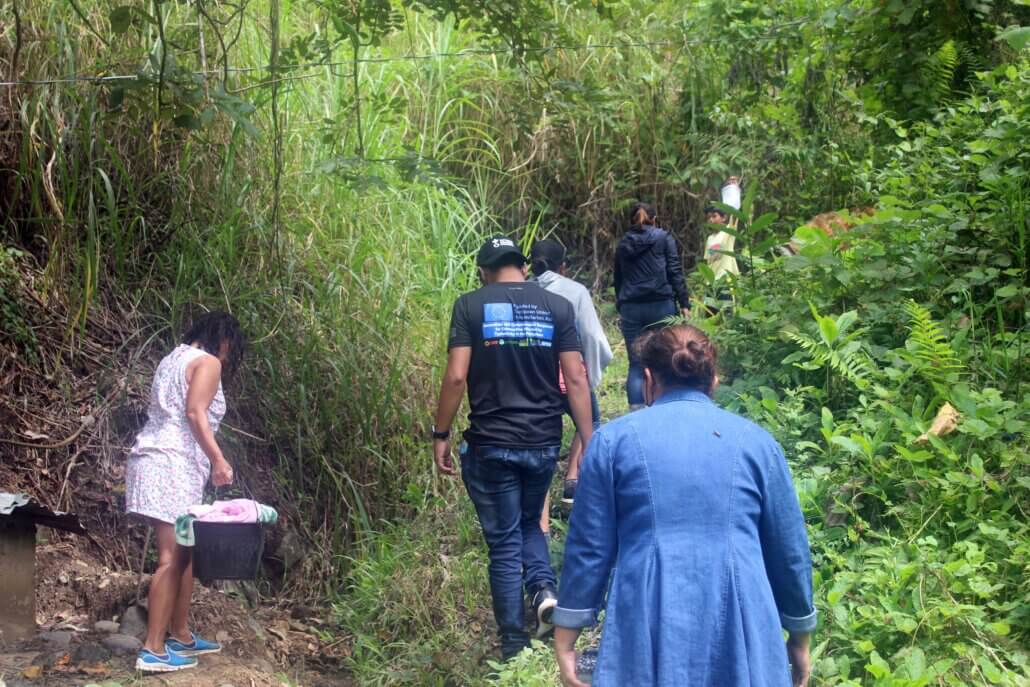
In photo: The team passes by a manmade well a few meters below Grace’s residence. The well was made especially for the only two houses located in the area; this includes Grace’s family. (Photo by Donna Ocmeja for Action Against Hunger)
Grace is a single mother with three children. Today, two of her children live with her in the mountainous barangay of Villa Aurora. Five people live in the house built by Grace herself: her son and daughter, her father and his partner, and herself.
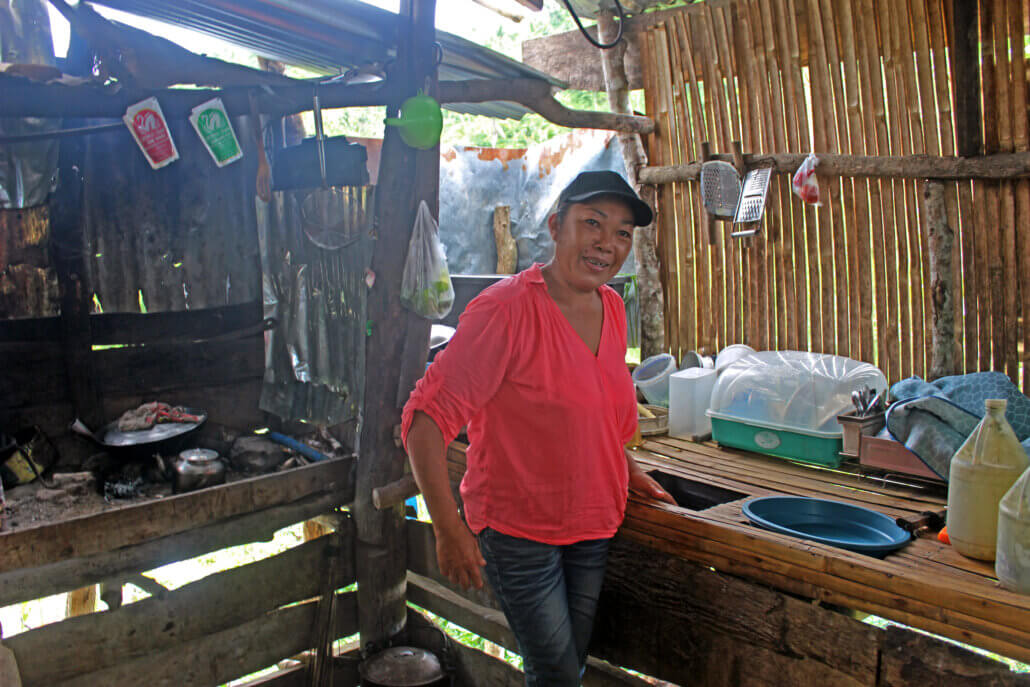
In photo: Grace expresses pride and happiness as she narrates how she managed to build up their house on her own, with little assistance from her father. (Photo by Donna Ocmeja for Action Against Hunger)
When Typhoon Rai (locally known as Supertyphoon Odette) hit their home, Grace’s father was the only person left since she was out of town at that time. Thanks to the village officials, her father got rescued just in time before the main parts of the house got washed away by strong winds and heavy rains. Grace went home a day after and came home to a devastating sight – the house that she built herself had been destroyed.
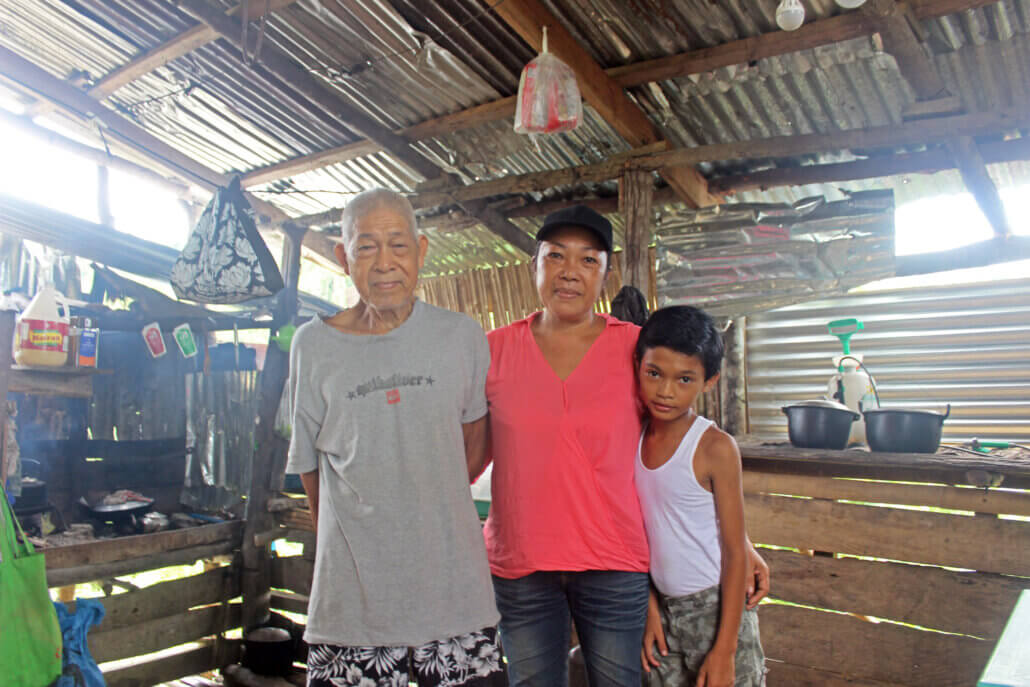
In photo: Grace with her father and son inside the family house. (Photo by Donna Ocmeja for Action Against Hunger)
With Grace doing most of the work, the reconstruction of the house is still ongoing eight months after Typhoon Odette’s ravage. Grace uses the cash assistance from the ECHO Typhoon Odette Emergency Response to buy materials to rebuild their home. She also received water, hygiene and sanitation (WASH) kits from Action Against Hunger.
Grace had been separated from her husband more than five years ago and has since then raised the family on her own. As the main provider of the family, Grace’s primary source of income is farming. She plants vegetables and root crops around the house. She also raises a few native chickens for consumption.
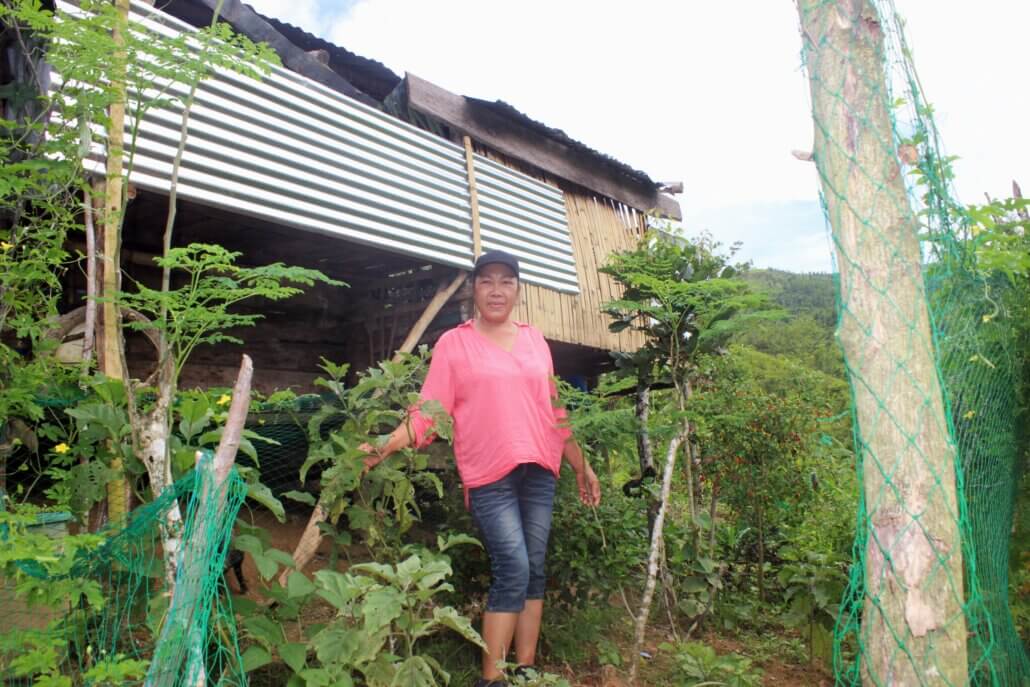
In photo: Grace shows her vegetable garden located just outside the house she built. (Photo by Donna Ocmeja for Action Against Hunger)
“Og di ka mananom [diri sa bukid], wa jud kay kaonon. Dako to kaayo og tabang namo [harvest], until now…Sauna, wala man gyud mi ga anad anang kuan kay naa mi sa syudad gapuyo sa wa pa mi dari. Ang kanang pagpananom kung kintahay di ka kabalao, pero akong gi tuohan, walay di nato mahibaw-an kung atong buhaton. Positibo lang dapat, kay ingana ang kinabhi,” Grace shared during an interview.
“If you don’t plant food here in the mountains, you will not have anything to eat. Our harvests are helping us a lot until now… We did not have any experience in farming because we grew up in the city. But I believe that nothing is impossible to learn if we just do it; the same goes for farming. We should be positive, that’s how life is,”
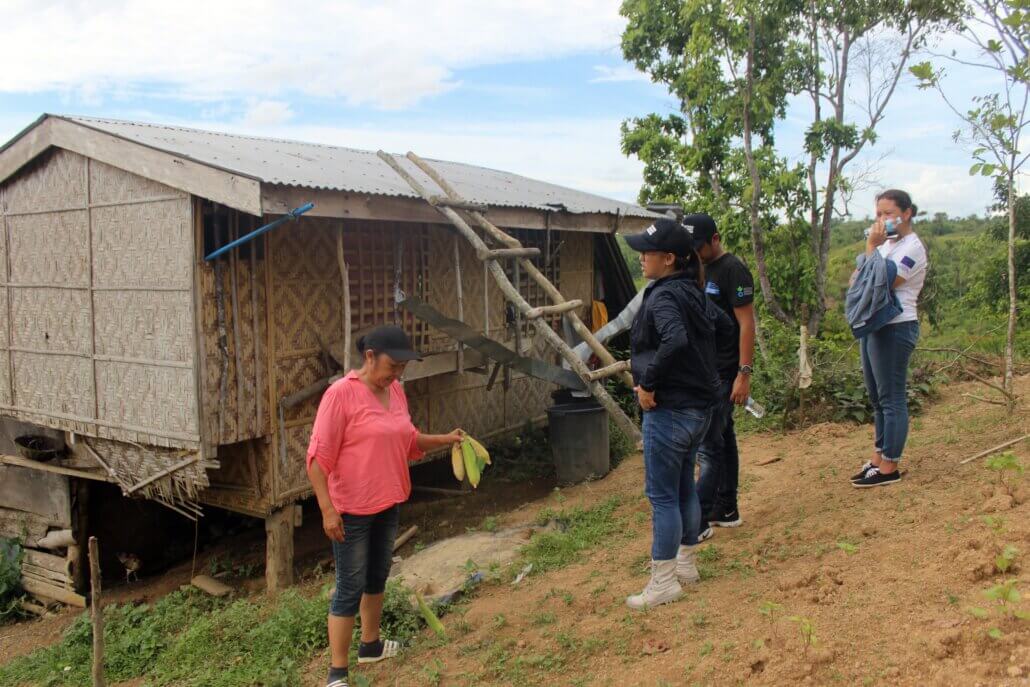
In photo: Action Against Hunger staff with Grace and her son having a conversation outside the house on top of the mountain. (Photo by Donna Ocmeja for Action Against Hunger)
Unfortunately, aside from the damages to the house, typhoon Odette also destroyed Grace’s garden and small farm, her family’s main source of living. With her perseverance and patience, Grace’s day-to-day life of farming and taking care of the family continues. On top of this is the ongoing repair of her house which she has been spending time on.
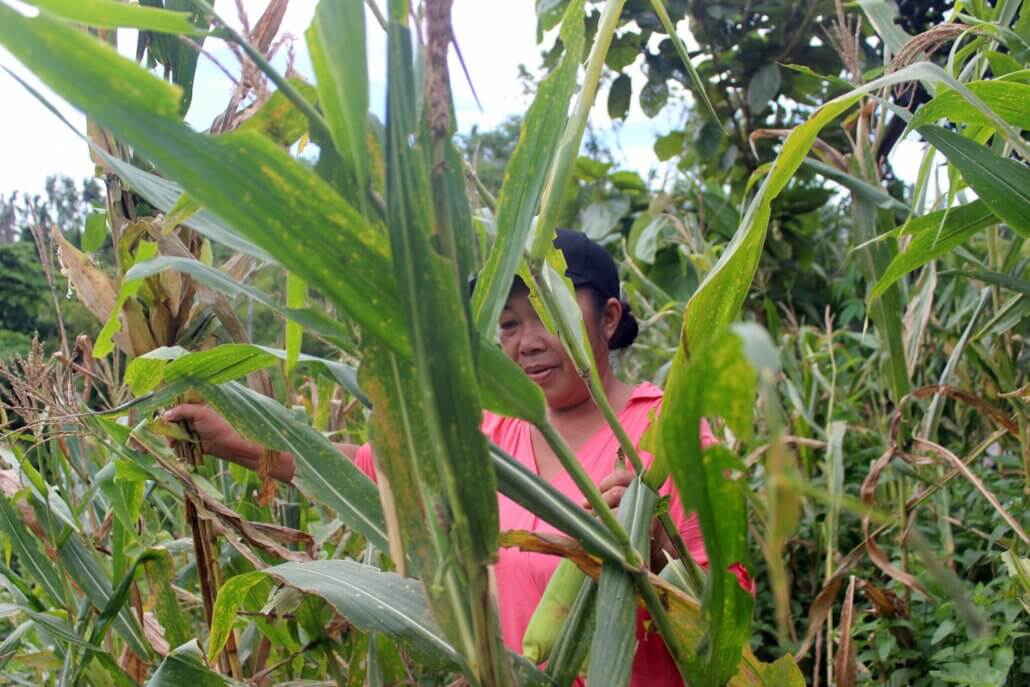
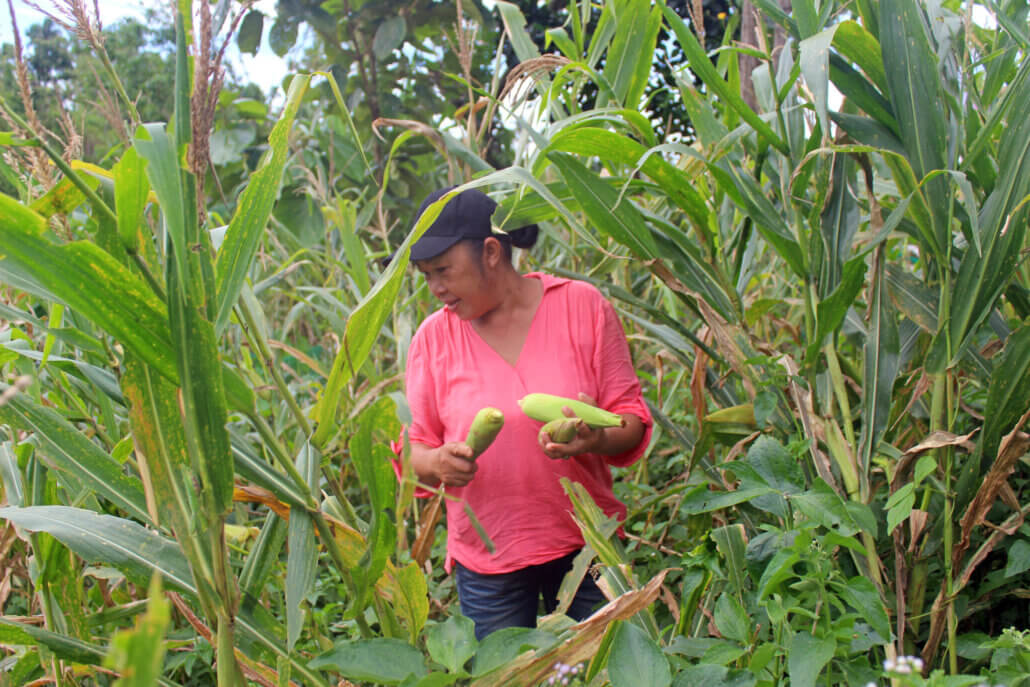
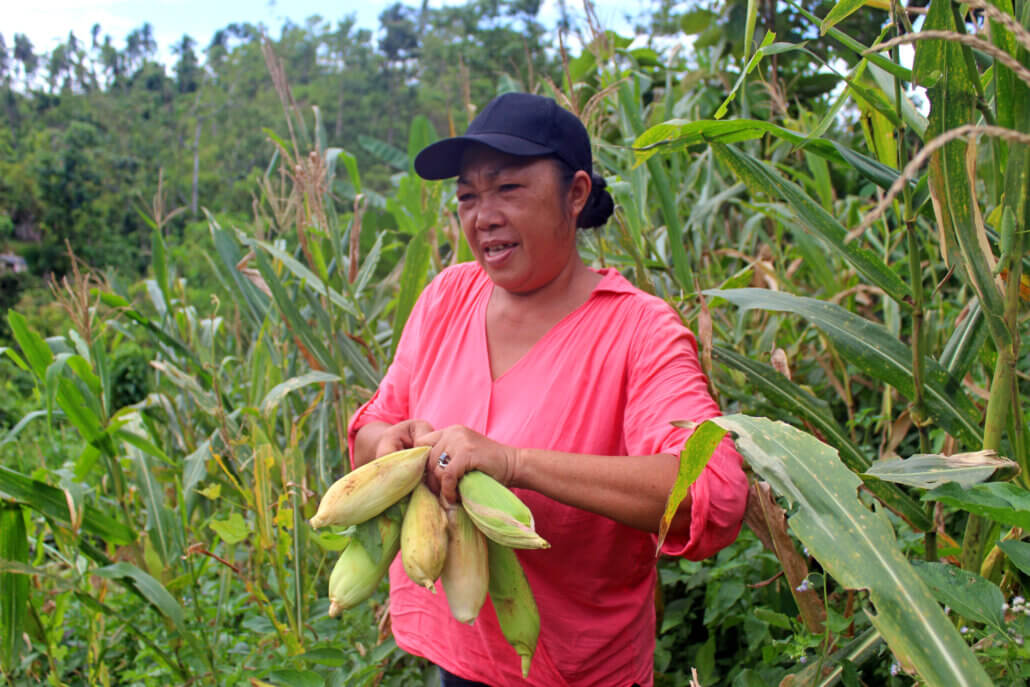
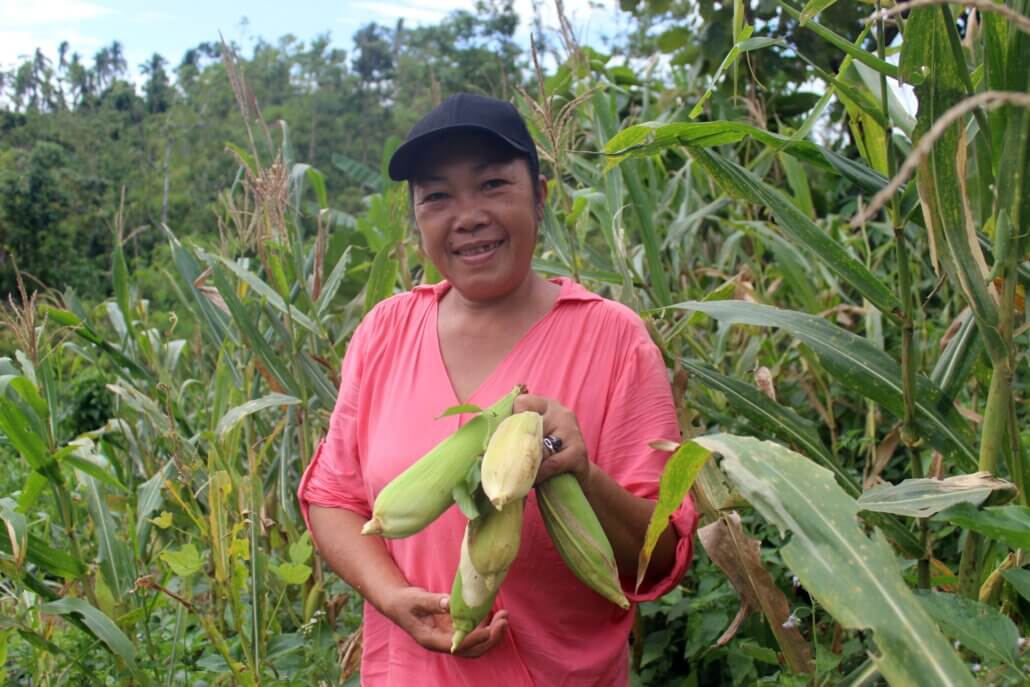 In photos: Grace harvests corncobs from her small farm located a few steps from her house. She planted the corn seeds herself after slightly recovering from typhoon Odette. (Photo by Donna Ocmeja for Action Against Hunger)
In photos: Grace harvests corncobs from her small farm located a few steps from her house. She planted the corn seeds herself after slightly recovering from typhoon Odette. (Photo by Donna Ocmeja for Action Against Hunger)
As a single mother who lives in a small, simple house located on a mountain isolated from the rest of the village, Grace stepped up her role at home and is now the head of the household and the family’s main provider.
“Naningkamot ko nga matuto og tarong ang akong anak bisan way amahan. Naningkamot ko kay lisod pod kaayo og imong pasagdan,” Grace highlighted in the last part of the interview.
“I work hard so that my children will grow to be good people even if they don’t have a father. I work hard because I cannot just take them for granted,”
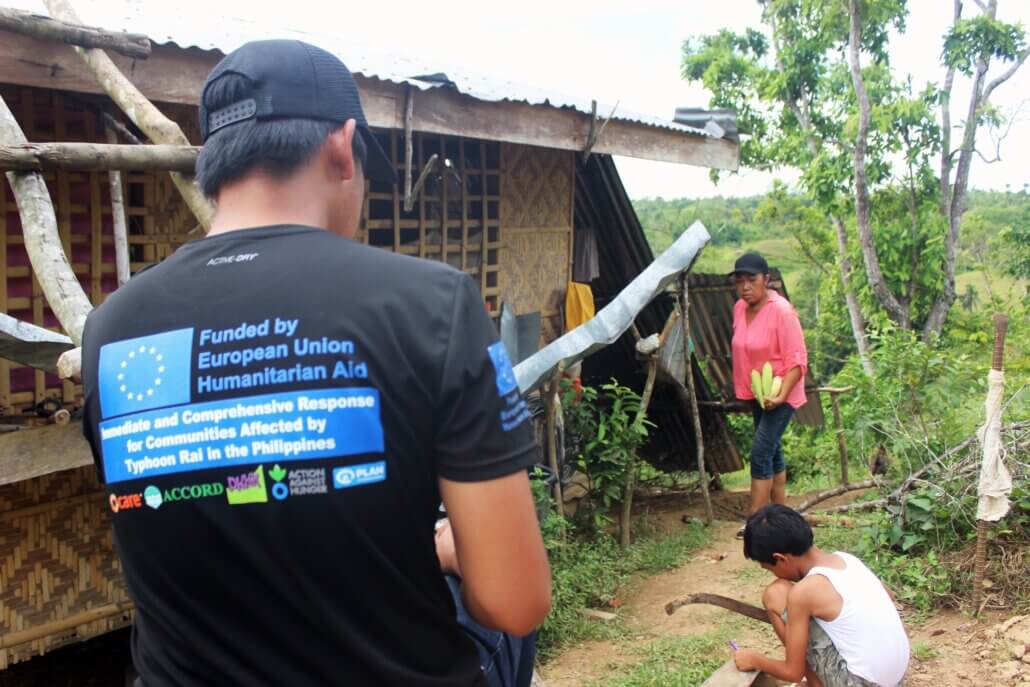
In photo: Action Against Hunger staff with Grace and her son having a conversation outside the house on top of the mountain. (Photo by Donna Ocmeja for Action Against Hunger)
The Immediate and Comprehensive Response for Communities Affected by Typhoon Rai (Odette) is funded by the European Civil Protection and Humanitarian Aid Operations (ECHO) and jointly implemented by CARE Philippines, ACCORD Incorporated, Action Against Hunger Philippines, National Rural Women Coalition (PKKK) and Plan International in Dinagat Islands, Palawan, Southern Leyte, Bohol, Negros Occidental, and Cebu, in the Philippines.
Written by Donna Ocmeja


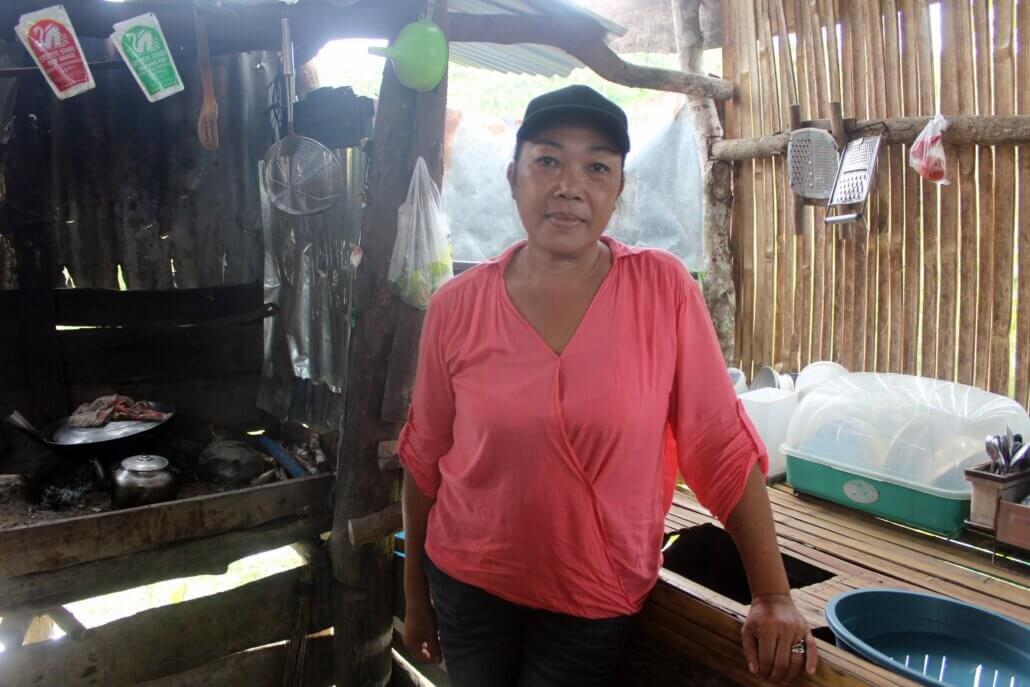
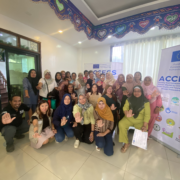
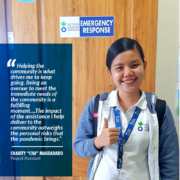
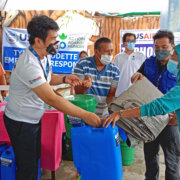
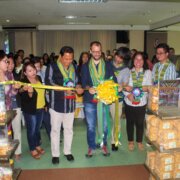
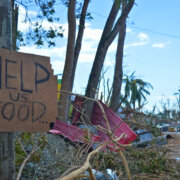
 https://www.facebook.com/lgaphilippines/posts/2906249299595916?_rdc=1&_rdr
https://www.facebook.com/lgaphilippines/posts/2906249299595916?_rdc=1&_rdr 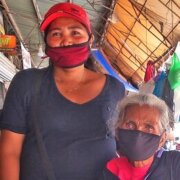
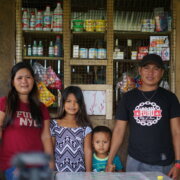



Leave a Reply
Want to join the discussion?Feel free to contribute!